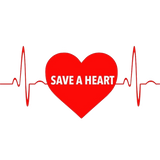The Signs and Symptoms of a Heart Attack

A heart attack, also known as a myocardial infarction, is a serious medical emergency that occurs when the blood supply to the heart is blocked. The most common cause of a heart attack is a build-up of plaque in the arteries that supply blood to the heart (known as coronary arteries). This plaque can rupture and form a blood clot, which can block the flow of blood and oxygen to the heart.
Symptoms of a heart attack can vary from person to person, but the most common signs include:
- Chest pain or discomfort: This is the most common symptom of a heart attack. The pain may feel like a squeezing, crushing, or tightness in the chest, and it may radiate to the arms, neck, jaw, or back.
- Shortness of breath: This may occur with or without chest pain.
- Nausea or vomiting: Some people may feel sick to their stomach or vomit during a heart attack.
- Sweating: A cold sweat or sudden onset of sweating can be a sign of a heart attack.
- Lightheadedness or dizziness: Some people may feel lightheaded or dizzy during a heart attack.
- Fatigue: Some people may feel unusually tired or weak before or during a heart attack.
If you or someone you know is experiencing these symptoms, it is important to seek medical attention immediately. A heart attack can be life-threatening, and the sooner treatment is started, the better the chances of a good outcome.
It is important to note that not all heart attacks are the same, and some people may experience different symptoms or no symptoms at all. For example, women and older people are more likely to experience atypical symptoms, such as nausea, vomiting, and fatigue, rather than chest pain. It is important to be aware of your own body and to pay attention to any unusual symptoms that may be related to a heart attack.
If you are at high risk for a heart attack (for example, if you have a family history of heart disease or if you have underlying health conditions such as high blood pressure or diabetes), it is important to talk to your doctor about your risk factors and how to prevent a heart attack. This may include making lifestyle changes, such as eating a healthy diet and exercising regularly, as well as taking medication to manage your risk.
By taking steps to prevent a heart attack, you can improve your overall health and reduce your risk of this serious condition.


